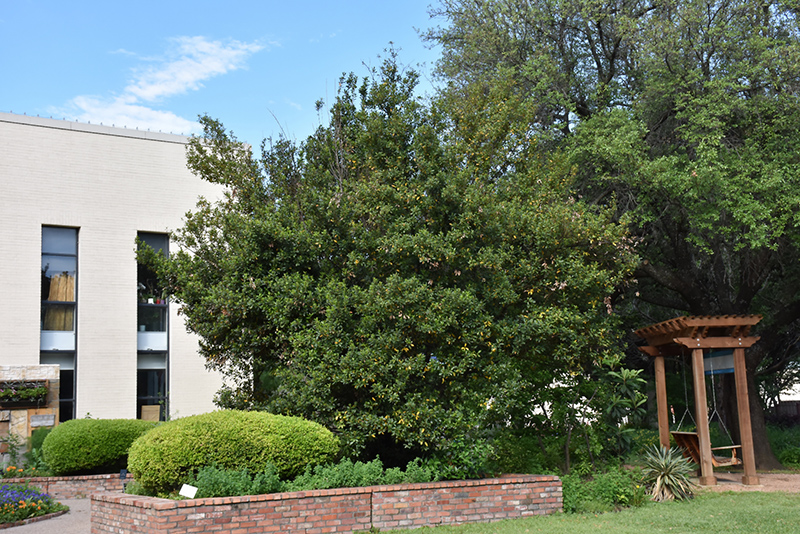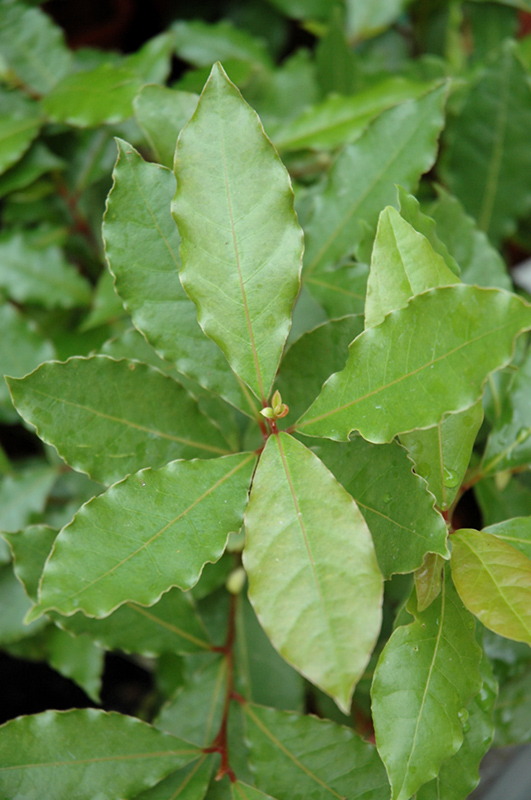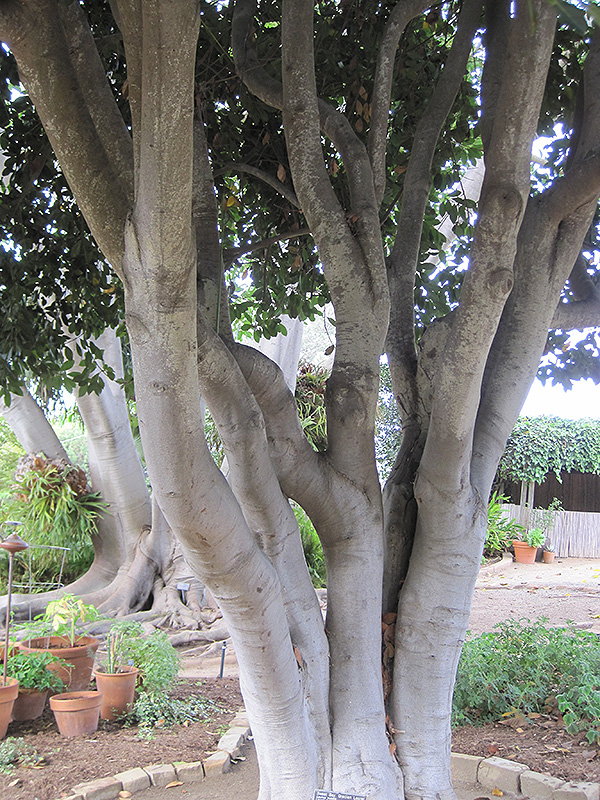Height: 30 feet
Spread: 20 feet
Sunlight:
![]()
![]()
Hardiness Zone: 7b
Other Names: Sweet Bay, Bay Leaf
Description:
A normally pyramidal, aromatic, evergreen tree or large shrub, with leathery, glossy dark green leaves commonly used as a culinary herb; may be pruned to any shape and size; great as a hedge, screen, or container plant; an excellent houseplant
Ornamental Features
Bay Laurel has attractive green deciduous foliage on a tree with a pyramidal habit of growth. The glossy oval leaves are highly ornamental but do not develop any appreciable fall color. It features subtle chartreuse flowers at the ends of the branches from early to mid spring. It produces plum purple berries in early summer.
Landscape Attributes
Bay Laurel is a multi-stemmed deciduous tree with a distinctive and refined pyramidal form. Its average texture blends into the landscape, but can be balanced by one or two finer or coarser trees or shrubs for an effective composition.
This is a relatively low maintenance tree, and can be pruned at anytime. It is a good choice for attracting bees and butterflies to your yard, but is not particularly attractive to deer who tend to leave it alone in favor of tastier treats. It has no significant negative characteristics.
Bay Laurel is recommended for the following landscape applications;
- Accent
- Shade
- General Garden Use
- Container Planting
Planting & Growing
Bay Laurel will grow to be about 30 feet tall at maturity, with a spread of 20 feet. It has a low canopy with a typical clearance of 2 feet from the ground, and is suitable for planting under power lines. It grows at a medium rate, and under ideal conditions can be expected to live for 60 years or more. This is a dioecious species, meaning that individual plants are either male or female. Only the females will produce fruit, and a male variety of the same species is required nearby as a pollinator.
This tree does best in full sun to partial shade. It does best in average to evenly moist conditions, but will not tolerate standing water. It is not particular as to soil type or pH. It is somewhat tolerant of urban pollution. This species is not originally from North America. It can be propagated by cuttings.
Bay Laurel is a fine choice for the yard, but it is also a good selection for planting in outdoor pots and containers. Its large size and upright habit of growth lend it for use as a solitary accent, or in a composition surrounded by smaller plants around the base and those that spill over the edges. It is even sizeable enough that it can be grown alone in a suitable container. Note that when grown in a container, it may not perform exactly as indicated on the tag - this is to be expected. Also note that when growing plants in outdoor containers and baskets, they may require more frequent waterings than they would in the yard or garden.


